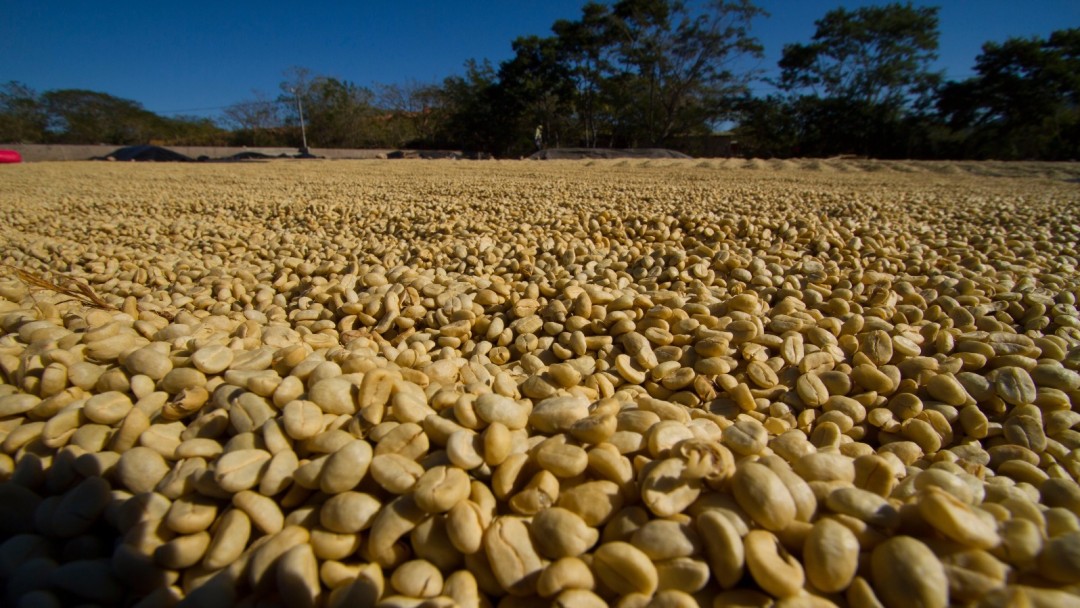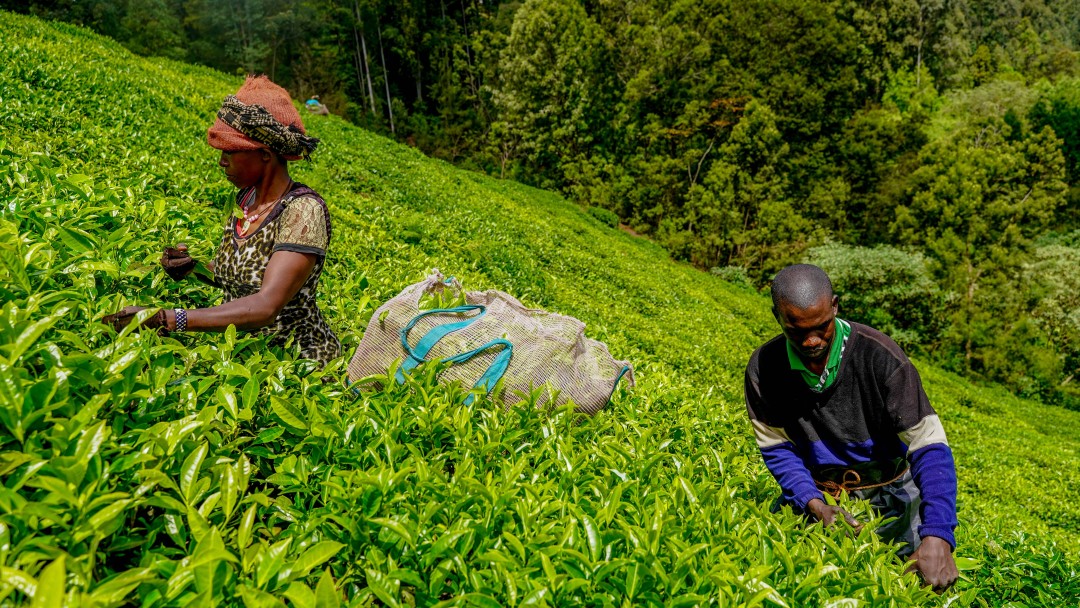Tip: Activate javascript to be able to use all functions of our website
Green Economy
One fund – two continents
Nature provides the foundation for our existence and is the basis for economic activity. And yet it is facing ever more pressure from human intervention: Intensive agriculture, deforestation, mining and unregulated fishing are increasingly threatening natural resources. In many parts of the world, the impacts of this are already clearly visible: soils are degrading, forests are disappearing, and water is polluted.
At the same time, hunger and malnutrition remain a serious problem, particularly in Africa, despite significant progress. The situation is exacerbated by a population growth rate that is among the highest in the world. In the battle against hunger, Africa needs not only more agriculture, but also more intensive agriculture. However, farming cannot be expanded at the expense of the environment and the climate if it is to become a sustainable long-term model. This means that Africa must reconcile its economic growth and its increasing demand for food with environmental principles.
This is why the economy must transform into a “green economy”, which requires incentives and capital. The eco.business Fund works towards this goal and promotes economic activity that contributes to the sustainable use of raw materials and the preservation of biodiversity. It also helps to mitigate climate change and adapt to its negative impacts. It was established in 2014 by KfW Development Bank on behalf of the Federal Ministry for Economic Cooperation and Development, working in partnership with Conservation International and Finance in Motion. It focuses on agriculture and forestry, tourism, fishing and aquaculture.

The eco.business Fund only supports companies that use sustainable production processes or specially defined measures that have a positive effect (green list measures). To this end, it brings together private and public investors who assume different levels of risk. The involvement of public institutions creates a risk buffer for other investors – this makes the fund more appealing and attracts more private capital. In Latin America in particular, the fund grants “green credit lines” to local banks, which in turn extend loans to local companies. With the expansion to Africa, the fund concept was also broadened and also includes investments directly in companies and cooperatives. Companies must have sustainability certificates from the Rainforest Alliance or FSC, for example, or be striving to acquire them or implement a sustainable measure that meets the green fund principles.
The eco.business Fund began its work in Latin America and the Caribbean where it has disbursed loans of more than USD 3 billion to ultimate borrowers since its formation. Given its success, an offshoot was also set up in Sub-Saharan Africa in 2019. The focus is on production practices that preserve forests. In this manner, the fund has promoted the cultivation of sustainable cocoa in Ecuador and Côte d'Ivoire, environmentally friendly coffee in El Salvador and sustainable certified tea in Kenya, for example.
In total, it has so far contributed to the sustainable management of more than 1.36 million hectares of arable land and to protecting almost 564,000 hectares of land from deforestation as well as saving 30.7 million cubic metres of water. In addition, almost 29,5 million tonnes of CO2 were stored through agroforestry activities, which corresponds to the emissions of more than 3.1 million people in Germany per capita per year, and 981,000 jobs were maintained or created in the eco-sector.
Share page
To share the content of this page with your network, click on one of the icons below.
Note on data protection: When you share content, your personal data is transferred to the selected network.
Data protection
Alternatively, you can also copy the short link: https://www.kfw-entwicklungsbank.de/s/enzBXlZx
Copy link Link copied